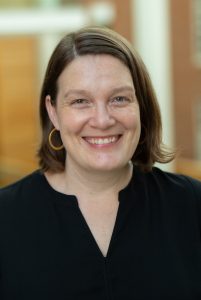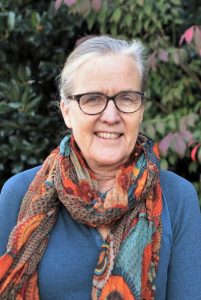
The University of North Carolina at Chapel Hill is working to support expansion of COVID-19 vaccination to primary care clinics in areas with low vaccination rates, thanks to a grant from the U.S. Centers for Disease Control and Prevention. The work comes as the pace of vaccination in North Carolina has slowed and the state and federal government expand efforts to target hard-to-reach populations.
More than 7 million COVID-19 vaccine doses have been administered in North Carolina, mostly at mass vaccination sites, hospitals, health departments and even inside cars. But in the next vaccination phase, more shots are expected to be given at doctor’s offices.
The UNC Center for Health Promotion and Disease Prevention (HPDP), supported by a $500,000 grant, will provide 18 primary care clinics in areas where vaccination is lowest with the coaching, data and community partnerships needed to get more people vaccinated, especially Black and Latino patients.
“Primary care doctors and nurses are among the most trusted professionals in the U.S. That’s where most of us prefer to get our vaccines and vaccine information,” said Melissa Gilkey, the scientific lead of the project who is a behavioral scientist at the UNC Gillings School of Global Public Health and fellow at UNC HPDP.

Alice Ammerman, a professor of nutrition at the UNC Gillings School of Global Public Health, directs UNC HPDP. It’s one of a network of 26 CDC Prevention Research Centers across the country to receive support to increase equitable access to COVID-19 vaccines. She’ll lead HPDP’s involvement in the network, sharing best practices and insights with other research teams.
“Prevention Research Centers, with their long-term community partners and focus on engagement, are well-positioned to make progress toward increasing vaccine confidence and uptake,” Ammerman said.
The work starts with an analysis of state data to identify areas in North Carolina with low vaccination rates and demographic gaps in vaccinations. Researchers will also analyze data from a state-wide survey of barriers to getting vaccines at primary care clinics.
The goal is to increase the likelihood that patients receive at least one dose of a COVID-19 vaccine and there are multiple strategies clinics can try. For example, setting reminders to talk to patients about COVID-19 vaccination and offering evening and weekend clinics to make it easier to schedule a shot.

The results will be tracked for three months, but researchers will spend a year eliciting community-driven ideas on ways to improve COVID-19 vaccination.
Joining the project will be Paul Delamater, a UNC geographer who specializes in geospatial analysis of vaccine uptake and refusal; Noel Brewer, a professor at UNC Gillings School of Global Public Health and internationally recognized expert in vaccine behavior and communication and Alexandra Lightfoot, a behavioral specialist at UNC Gillings School of Global Public Health and expert in community engagement.
The team of UNC experts in behavioral science, vaccine delivery and community engagement will conduct the project in partnership with the NC Division of Public Health, the NC Area Health Education Centers (AHEC) and the PRIME Collective, a group of community experts that partners with investigators to engage communities in research.
